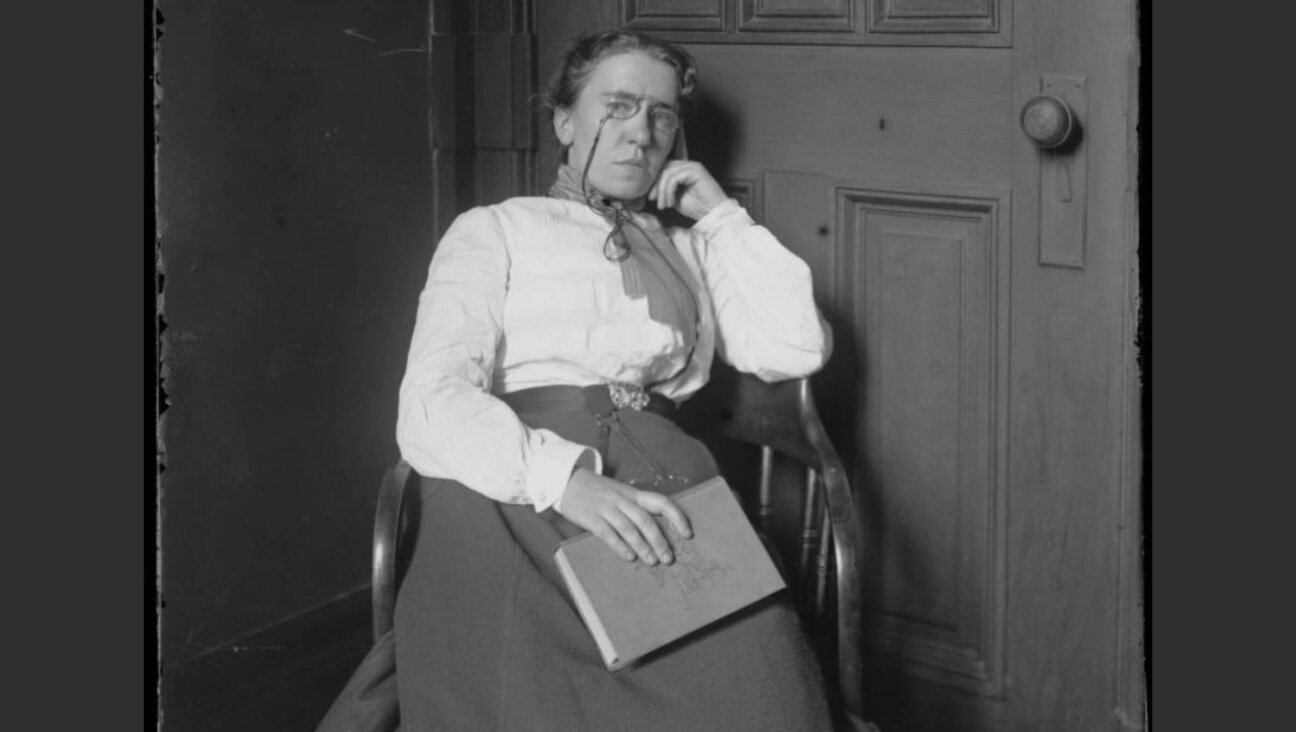A ‘Lolita’ Musical Flopped 50 Years Ago. After #MeToo, Does It Have A Future?

Composer Frederick Loewe and lyricist Alan Jay Lerner working together at a piano, circa 1950-1955. Image by Getty Images/Pictorial Parade/Staff
Almost no one wanted to publish Vladimir Nabokov’s “Lolita.” After multiple rejections, the Russian writer finally managed to place the novel at Olympia Press, a publisher with a reputation for accepting borderline pornographic work, in 1955.
While many might have applied those terms to “Lolita,” the narrator of which, Humbert Humbert, is a pedophile, Nabokov won out. The book became a literary classic. And as such, it naturally became the source text for a failed musical.
In 1971 Alan Jay Lerner, the Tony and Oscar-winning librettist of “My Fair Lady” and “Camelot,” broke from his usual collaborator, Frederick Loewe, to work with film composer John Barry in adapting Nabokov’s infamous novel for the stage.
It turned out to be even more un-producible than the book was unpublishable.
After poorly-received tryouts in Philadelphia and Boston and several rewrites by Lerner, the musical “Lolita, My Love” closed before it had a chance to open on Broadway. But the show isn’t dead just yet. As The New York Times’ Louis Peitzman reports, the York Theater Company is about to revive it, albeit with some revisions by playwright Erik Haagensen pieced together from Lerner’s many drafts.
This revival is relatively low stakes. It’s not a full-scale production, but rather part of the York’s “Musicals in Mufti” reading series, organized to celebrate Lerner during his centenary year. But the team behind the reading is aware that a musical with a pedophilic lead is a tricky proposition, no matter how well regarded the novel on which it’s based may be.
“People have been afraid of it,” James Morgan, The York’s producing artistic director, told The Times. “I guess it’s possible that we could be picketed by hundreds of people, but I think anyone who sees it will realize that it’s not being done for the wrong reasons.”
But the York’s version of the show still inherits problems from Lerner’s scripts.
If you were to do an adaptation of ‘Lolita’ today, it wouldn’t look like this,” the reading’s director, Emily Maltby, told The Times. Haagensen’s revisions partially challenge Humbert’s delusions and justifications through the expanded character of his female therapist, Dr. Ray. In the novel, a fictional Dr. John Ray appears as the author of the foreword to Humbert’s account of his relationship with Lolita, the manuscript that makes up most of the novel; Lerner initially included the role in some drafts of the musical as a male. But despite this shift, the musical still focuses on Humbert rather than his adolescent victim. As in the boook, Lolita’s character appears to the audience primarily through the lens of her abuser’s gaze.
That doesn’t mean that Lolita, played in the York’s production by Caitlin Cohn — an actress in her mid-20s, where the character is 12 years old — has a minor role in the show.
“You really do end up hearing her own voice,” Cohn told The Times. “Audiences should hopefully feel very empowered by that — that even though this man tore apart her life, he didn’t tear apart everything that she is and will be.”
While “Lolita, My Love” has had a low profile since it flopped nearly half a century ago — its only extant recording is a bootleg tape from the Boston run — Lerner continued refining the book after the show’s final bow. Haagensen used two scripts Lerner wrote during that time in assembling a version of the musical that puts more emphasis on Lolita’s suffering and Humbert’s responsibility for it.
“There is something very poignant and important about holding this character accountable for his actions and not just presenting the story as a series of events that happen between this man and this young girl,” Maltby told The Times.
PJ Grisar is the Forward’s culture intern. He can be reached at [email protected]

















